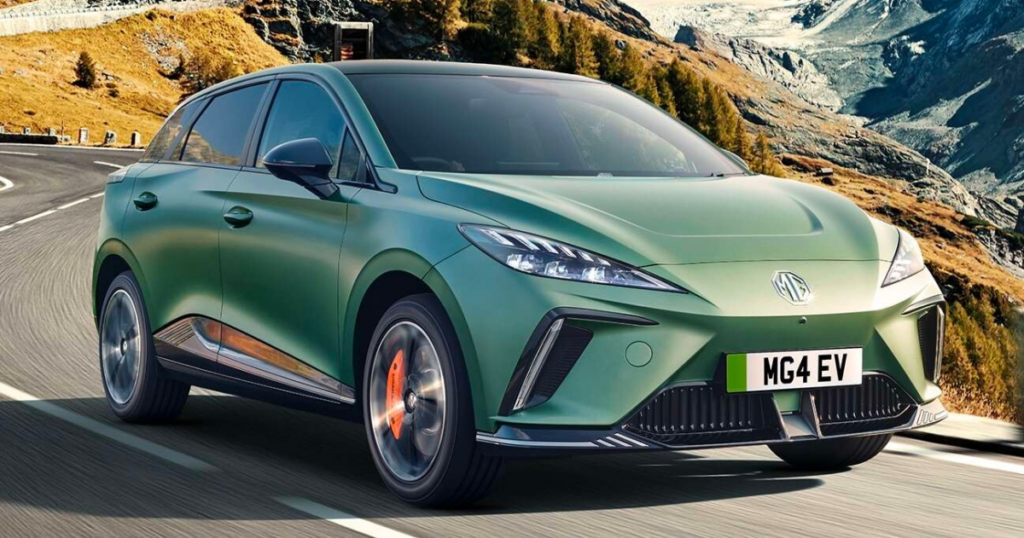China’s dispute with the EU over temporary tariffs on electric vehicles has escalated as Beijing seeks WTO intervention while also planning to establish factories in Europe to avoid these duties.

The conflict over the EU’s temporary tariffs on electric vehicles (EVs) from China has intensified. Beijing announced that it is taking the issue to the World Trade Organization’s (WTO) dispute settlement body, aiming to protect the rights and interests of its domestic EV industry. According to China’s Ministry of Commerce, the EU’s decision lacks a factual and legal basis, violates WTO rules, and undermines global cooperation and climate action. China has urged the EU to rectify its “misconduct” and work together to secure economic and trade cooperation and the stability of the EV industry’s supply chain. However, China is not waiting for a WTO ruling, which could take years. Instead, it is moving forward with its strategy to counter the tariffs.
Chinese automakers plan European factories to avoid EU tariffs
In response to the tariffs, Chinese automakers have already taken action, planning to establish factories within the EU to bypass the high duties. Leading EV manufacturer BYD plans to build a factory in Hungary, rewarding Prime Minister Viktor Orbán for his pro-China stance. Meanwhile, Chery Automobile has partnered with a Spanish company to start EV production in Catalonia by 2024.

Despite a recent dip in demand for EVs in Germany, the European EV market is expected to grow significantly in the coming years. The EU aims to have 30 million electric vehicles on the road by 2030. Last year, Chinese EV brands like BYD held an 8.2% market share in Europe, up from just 0.5% in 2019. By the first half of 2024, this figure had risen to 11%, according to Bloomberg. These vehicles are affordable, technically advanced, and have benefited from years of subsidies from Beijing. As a result, China has developed massive overcapacity, with excess vehicles flooding the European market, despite soaring sales within China itself—where more than half of all vehicles sold in July were electric.
Chinese automakers respond to EU tariffs with local production plans
The European Commission decided in mid-June to impose special tariffs on Chinese EVs, ranging from 17.4% to 38.1%, which took effect provisionally in early July. The United States had previously announced a 100% tariff, although its implementation has been delayed. The EU must make a final decision in November on whether to maintain these tariffs.
Establishing factories in Europe makes strategic sense for Chinese companies aiming to avoid these special tariffs. BYD’s factory for EVs and plug-in hybrids in Hungary is expected to begin operations in three years. BYD’s European chief, Michael Shu, announced in May that the company plans to build a second plant in the EU by 2025. BYD aims to become a leading EV provider in Europe by 2030. The company was also a key sponsor at the Men’s Football European Championship, serving as a mobility partner. In addition, BYD plans to build an EV plant in Turkey.
China’s largest car exporter, Chery, announced in April a joint venture with the Spanish company EV Motors, where Chery is a minority shareholder. The partnership plans to begin assembling the Chery Omoda electric model this year. According to the Financial Times, Chery is also considering building a car factory in the UK before the decade’s end.
Other Chinese automakers are following suit. In 2023, Leapmotor partnered with European giant Stellantis, with plans to produce small electric models at Stellantis’ plant in Tychy, Poland. Stellantis CEO Carlos Tavares expects the first deliveries of the jointly produced cars by the end of this year.
Geely, which acquired Volvo in 2010, already has factories in Sweden, Belgium, and the Netherlands and holds a 10% stake in Mercedes-Benz. In 2022, Geely signed a license agreement with a Polish state-owned company to manufacture EVs, although the new government is currently negotiating this agreement. Additionally, the Chinese state-owned company and VW partner, Shanghai Automotive (SAIC), is seeking a production site in Europe and owns the British brand MG.

Local factories increase acceptance of Chinese EVs in Europe
Local production in Europe could boost the societal acceptance of Chinese brands, which are seen as more favorable when they create jobs locally. Scott Kennedy, an expert on China’s cleantech industry at the Center for Strategic and International Studies (CSIS) in Washington, highlights the broader implications for Western governments. According to Kennedy, they must decide whether they want to allow Chinese EVs into their markets as part of global decarbonization efforts. The presence of Chinese competition is likely to exert significant pressure on Europe’s established auto industry. If the goal is to limit Chinese EVs, Europe must determine how far it is willing to go to keep them out, he writes. The EU has so far indicated that it is open to investments from Chinese EV and battery manufacturers.
However, a study by the European Council on Foreign Relations (ECFR) warns that Chinese cars pose a security risk. The report argues that connected EVs from China could enable cyber espionage and collect vast amounts of data. The EU must decide whether to block Chinese EVs entirely, find a compromise acceptable to all, or accept Chinese dominance due to their cost advantages. Each of these scenarios comes with costs, either for state coffers, the European auto industry, consumers, or climate protection.
Which path the EU will choose depends on the political majority in Brussels. But Kennedy believes that defense is not the only consideration; offense is also crucial. He argues that Western nations are not doing enough to support their own industries.









